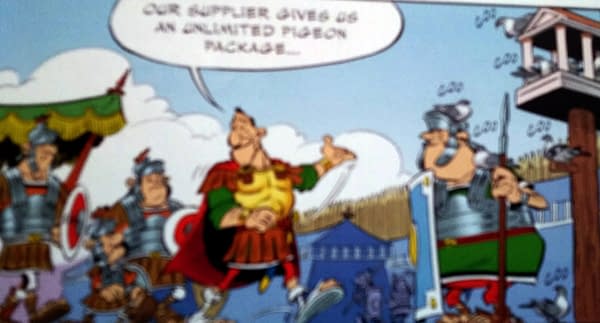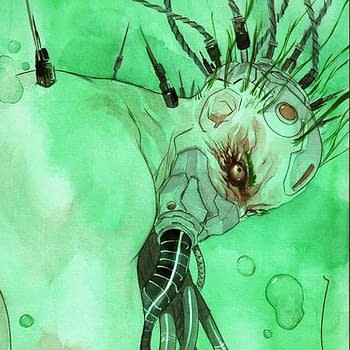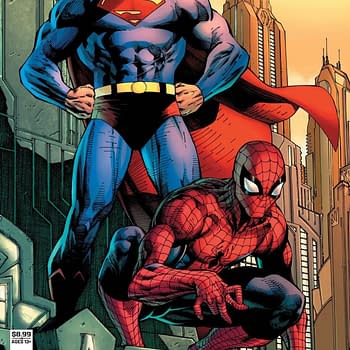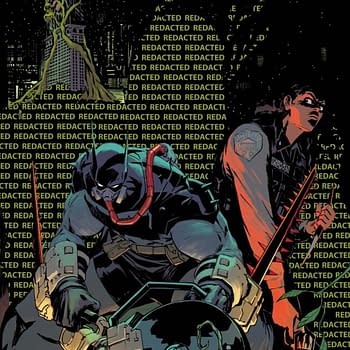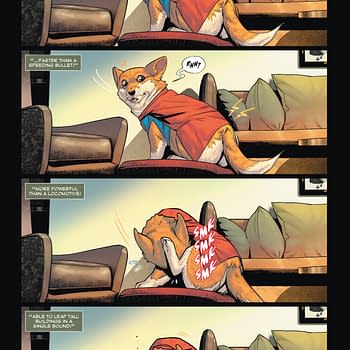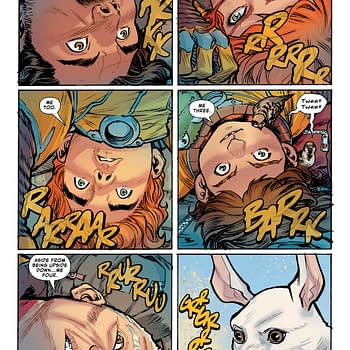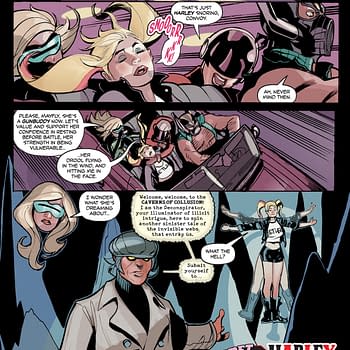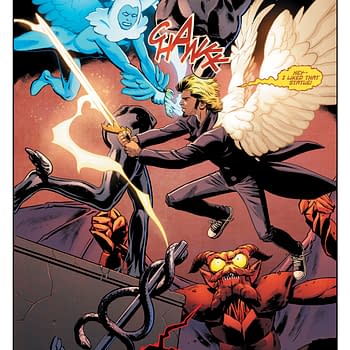Posted in: Comics | Tagged: asterix, Comics, entertainment, missing scroll
Seven Thoughts About Asterix And The Missing Scroll (SPOILERS)
I picked up a copy of the new Asterix And The Missing Scroll when I was in Brighton and have been reading it with the kids.
Recent volumes since the death of original writer Rene Goscinny, have been rather lacking I've found. But with this volume, we are back on top. This is as good as Asterix In Britain for my money.
I'm going to give ten things that occurred to me while reading and rereading. They will get more spoilery as it goes down. If you are convinced to read it at any point, stop there, and come back after you've read it…
1. Caesar's history of the Gallic Wars was a genuine historical document written by Julius Caesar, detailing his conquest of France. That there is an excised chapter detailing his defeats at the hands of Asterix's village is a brilliant twist that fits Asterix into official history, while explaining why it is counter to the accepted historical record.
2. That it is a Julian Assange lookalike who is dedicated to exposing this missing chapter, called Confoundtheirpolitix in the UK translation, put Asterix back into the position of being a social and cultural satirist. This was commonplace in early Asterix volumes, but then took a back seat.
3. Because while this is feels very much like a classic Asterix book, with all the elements that you may expect and indeed need, the boars, the Roman fights, Obelix getting obsessed with something trivial, the Chief battling his wife, the bard getting gagged, the final page feast etc…
4. …they do step outside the lines in the sand every now and then, while incorporating it with what came before. So, Getafix does the one thing he has always refused o do, given serious circumstances – and drink the very potion he was once addicted to. We have Demon In A Bottle, Asterix style. Will this be followed up on, in future volumes?
5. Because it is very much an Asterix of the now, with carrier pigeon post being treated as modern communication, interpreted as text messages. Gag after gag after gag, with this being my favourite. A very Terry Pratchett feel.
5. We also get innovation from certain characters with the Bard being given a greater role than simple annoyance. Indeed, more of the regular characters get more to do, giving a real village feel reminiscent of Obelix And Co. Indeed, that's probably the book that this reminds me most of, especially with Obelix's crisis of confidence.
6. The one downside for me is the portrayal of the African scribes to the Imperial Court. Asterix has often happily caricatured nations around the world, but its visual portrayal of black people has often been problematic than say the Roman noses or the British lack of chin. A happy medium could have been found by simply choosing not to go with bright red lips, favouring a darker brown maybe, and it would have probably fitted in better with the rest of the portrayals. It does stick out and stings the modern eye. It's not a call for Asterix to be politically correct in their portrayal of the world, but it could be a small tweak that colourists could consider for a future volume.
7. Final spoilers… All the details of Casear's defeats are eventually told to the Druids of the forest, who have an oral rather than a written down tradition of preserving history. It is passed down the centuries, until a druid tells all the stories to a young Goscinny and Uderzo in a Paris cafe in the 1950s. Retroactively declaring every Asterix volume as a genuine historical document, whatever the official history says, and also working as a tribute to the original creators. This is a twist reminiscent of the likes of Grant Morrison and blew my tiny little mind.





